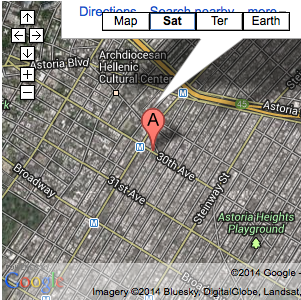15Mar
 The Obama administration issued a Policy Memorandum that clarifies an existing policy known as “Parole in Place.” This policy is based in the legislative parole authority given to the Secretary of the Department of Homeland Security in the Immigration and Nationality Act. That law permits the Executive Branch to issue immigration paroles, including paroles in place, and the immigration agencies have been issuing such paroles for decades. Therefore “parole in place” is not new, but has seen a revival.
The Obama administration issued a Policy Memorandum that clarifies an existing policy known as “Parole in Place.” This policy is based in the legislative parole authority given to the Secretary of the Department of Homeland Security in the Immigration and Nationality Act. That law permits the Executive Branch to issue immigration paroles, including paroles in place, and the immigration agencies have been issuing such paroles for decades. Therefore “parole in place” is not new, but has seen a revival.
Parole in place offers a unique opportunity for non-citizen spouses, parents, and unmarried minor children of U.S. citizen who are members of the U.S. military (current or past) who have remained in the U.S. after an unlawful entry a path to a U.S. green card that is not accessible to others.
This benefit known as “parole in place” or PIP permits those who potential immigrants, qualified for a green card based on close family relationship to “adjust status” while in the United States. In other words, apply for lawful permanent residence or a green card without departing the United States, when others that are illegal in the U.S. for the very same reason, cannot adjust and must visa process their case.
Those that do not qualify for Parole in Place must leave the U.S> and are subject to a bar of reentry for 3 to 10 years.
Who Qualifies?
Only “immediate relative,” qualify, That is, either a U.S. citizen’s:
- Spouse of a U.S. citizen
- Unmarried child (under age 21), of a U.S. citizen or
- Parents of U.S. citizen that is over the age of 21.
An immediate relative is eligible for a green card immediately, without awaiting in line for a visa.
The excellent news is that PIP works to eliminate at least two of the grounds of inadmissibility that might interfere with your entry, both are found in the Immigration and Nationality Act at INA § 212(a)(6)(A)(i).
The first ground of inadmissibility that PIP resolves relates to any noncitizen “present in the United States without being admitted [inspected by a border official] or paroled.” With a PIP approval, you in essence, are retroactively “paroled in” to the United States.
The second ground of inadmissibility that PIP resolves applies to any noncitizen who “arrives in the United States at any time or place other than as designated by the [Secretary of Homeland Security].” Again, PIP makes these two reasons of inadmissibility a non-issue. The best part is that since you do not have to travel abroad for the interview, and will adjust status in the U.S., you have no more fear about inadmissibility and being barred from return to the U.S. for three or ten years as a penalty, since you will not have to leave the U.S. at all.
However, if you believe you might be inadmissible on any other grounds, you may have trouble being granted a green card, and should absolutely consult with an experienced immigration lawyer.
Are you eligible for PIP?
Eligibility for PIP approval, requires a certain relationship with a member of the military. You must be the spouse, child, or parent of either:
- A current participant of the Selected Reserve of the Ready Reserve,
- An Active Duty member of the U.S. Armed Forces’ or
- ]Someone who has formerly served in the U.S. Armed Forces or the Selected Reserve of the Ready Reserve.
Understand PIP eligibility is not automatic for members these three groups, but they are the only ones who are requested to apply for it under the new policy.
Some people will not be granted PIP:
Those with a criminal conviction or other “serious adverse factors.”
Parole in place is granted only on a "discretionary" basis, which means the immigration authorities only will grant it if they want o, not just because a person that is married to a military employee. They must be convinced that the applicant merits their help. If there is anything negative in your personal history that makes you suspect that immigration officials may want to remove you from the U.S., for sure, consult an immigration
How to Apply for “Parole in Place”
The first step is to repare and submit the following to U.S. Citizenship and Immigration Services (USCIS):
- Form I-131, Application for Travel Document
- Evidence of the family relationship to the U.S. citizen military serviceperson (i.e a copy of a birth or marriage certificate)
- Evidence that the U.S. citizen family member is either an Active Duty member of the U.S. Armed Forces, in the Selected Reserve of the Ready Reserve, or previously served in the U.S. Armed Forces or the Selected Reserve or the Ready Reserve, such as a photocopy of the military identification card (DD Form 1173; make copies of both the front and back).
- Two identical, color, passport-style photographs of the noncitizen applicant, and
- Evidence of any additional sympathetic and discretionary factors that you would like to have USCIS take into account, such as letters from your church, community leaders or teachers showing participation in volunteer activities, personal education, or your children's education.
- There is no fee for this application. (Based on 8 C.F.R. 103.7(d).)
Final Step: Apply for Adjustment of Status
Once you have received approval of your parole in place, you can continue by filing an Adjustment Packet.
 On Friday, San Jose Democrat Zoe Lofgren, a senior member of the House Judiciary Committee and a strategic player on immigration policy, accused House Republicans of back tracking on immigration reform
On Friday, San Jose Democrat Zoe Lofgren, a senior member of the House Judiciary Committee and a strategic player on immigration policy, accused House Republicans of back tracking on immigration reform
On Thursday, the House on a party line vote passed legislation to oblige President Obama to enforce immigration laws, a reference partly to a 2011 administration memo insisting immigration agents to use discretion classifying certain removal cases as a “low priority” for removal, and a 2012 executive order eliminating the deportation danger to Dreamers.
Lofgren said the GOP bill also would roll back a “parole-in-place” policy that allows the immediate family of U.S. military to avoid deportation. “parole in place
“Parole in place” or PIP permits those immigrants that qualify for a green card based on familial relationship to “adjust status.” In other words apply for lawful permanent residence or a green card, without having to leave the United States, despite a past illegal entry and stay.
Other immigrants in like situations whose family members are NOT U.S. military members are not permitted to adjust status, but must leave the U.S. for “consular processing” to complete their application for a green card. This process places the individual in a precarious position of confronting a three- or ten-year bar upon return,. This is the penalty for past unlawful presence.

President Obama has ordered a review of his administration’s deportation policies with the goal of making them more “humane,” following accusations by advocates for immigrants that US practices are lacking in compassion.
President Barack Obama finally caved in to pressure from immigration rights activists and indicated on Thursday that he may change his deportation policy.
Following charges by advocates for immigrants that US practices are absent in compassion; President Obama has directed a review of his administration’s deportation policies with the purpose of making these policies more “humane,”
For many months the White House claimed there was nothing they could do to curtail the tide of deportations of undocumented immigrants, short of Congress approving a comprehensive immigration reform bill. However, now he has changed his views.
To immigrant rights advocates, this is somewhat of a victory. It signifies that Obama is making moves towards altering the administration’s deportation policies. Immigration advocates, however, will not be content until the policies are in force.

"Our office is experienced in using these defenses to stop deportation and at times, even obtain a Green Card during the trial process. We have assisted untold numbers of immigration fighting to stay in the U.S. with their families.
We can help you too."
When an Immigration Judge discovers that an alien is illegally present in the United States, it does not necessarily mean that the person must be deported. The Immigration Laws provides for many defenses to prevent Removal (deportation). The most commonly used defenses to deportation are (1) waivers of excludability and deportability; (2) cancellation of removal for permanent residents; (3) cancellation of removal for non-permanent residents; (4) suspension of deportation; (5) adjustment of status to permanent residence; (5) asylum and withholding of deportation; (6) legalization and registry and, (7) voluntary departure.
The tab above - Deportation Defenses- explains how each defense can help you to Stop the Deportation and in many cases, even obtain a Green card during the deportation process.

A deportable alien who is the parent, spouse, widow or child of a U.S. citizen may be eligible to apply to the Judge to adjust his status to that of a lawful permanent resident (Green Card). Also qualified to apply for adjustment of status are many aliens whose priority dates for permanent residence are "current". Aliens who obtained conditional permanent residence based upon their marriage, or the marriage of their alien parent, to a U.S. citizen who were unable to have their status adjusted from Conditional (temporary) resident to Permanent Resident may, once USCIS places them under deportation proceedings, have their application renewed before an Immigration Judge.
Who qualifies for Adjustment of Status?
The Immigration and Nationality Act (INA) authorities an individual to adjust their immigration status while in the United States from nonimmigrant or parolee (temporary) to immigrant (permanent), if the person was inspected and admitted or paroled into the United States and is able to meet all requisite qualifications for a green card (permanent residence) in a particular category.
The common term for a change to permanent status is “adjustment of status.”
The INA provides an individual an easy path to permanent resident status. Adjustment of status is the process by which an individual is permitted to adjust their immigration status while in the United States from nonimmigrant or parolee (temporary) to immigrant (permanent). This only can happen if the person was inspected and admitted or paroled into the United States and is able to meet all requisite qualifications for a green card (permanent residence) in a particular category. There is an exception to the requirement of a proper entry, if the person qualifies for Section 245(i) of INA.
Statutory Bars to Adjustment of Status
The INA lists several categories of aliens to whom adjustment of status is not permitted. They are:
1. Foreign National Crewmen - D Visa - Those who, at the time of arrival, were serving on board a vessel or aircraft or were destined to join a vessel or aircraft in the United States to serve in such as a crewmen are barred from adjustment of status.
2. Transits Without Visas ("TWOV") - C Visa - Aliens who are in immediate and continuous transit through the United States to a foreign destination, in accordance with the terms of an agreement entered into between the transportation line and USCIS, are not eligible for adjustment of status.
3. Aliens Who Entered Under Visa Waivers -An alien (other than an immediate relative) who was admitted as a nonimmigrant visitor without a visa under section 212(l) [visa waiver for B-1/B-2 admission to Guam] or section 217 [visa waiver program] is barred from adjustment of status.
4. Aliens Who Have Conditional Residence - Aliens who were admitted for permanent resident status on a conditional basis either as spouses whose marriages are less than 2 years old at the time of admission as conditional residents or as immigrant investors (entrepreneurs), are ineligible for adjustment of status. However, once conditional residence is terminated, the bar is lifted.
5. K-1 Fiancés -Aliens who are admitted on a temporary basis under the K-1 category for fiancés may only be adjusted to permanent residence on a conditional basis, if they marry the K-1 sponsor who filed the petition
6. Unauthorized Employment, Unlawful Status or Failure to Maintain Status - Aliens who have engaged in unauthorized employment, who are out of lawful status at the time of filing of the adjustment application or who have failed to continuously maintain status since they entered the United States are not permitted to adjustment of status. However, this does not apply to immediate relatives of United States citizens or certain special immigrants.
But as stated above some of these people may still be permitted to file adjustment. See Section 245(i) .
How to Contact us
NewarkDeportationLawyer.com
Immigration Consultation
In English, Portuguese and Spanish.
Since the establishment of Apsan Law Offices, more than 30 years ago, we have been defending immigrants in deportation cases, battling for their right to live in the U.S. Our staff is experienced in every aspect of U.S. immigration laws and can help you through the immigration red tape so that your procedure goes smoothly, cost effectively and successfully.
Our Immigration Consultation Fee
If you are in need of legal assistance with US immigration matters, you may schedule a 20-minute in-person, telephonic, or video conference legal consultation with one of our attorneys. The consultation fee is $200, payable by credit card or Paypal and applicable to your fee (if you retain our firm on the same day of your consultation).
How to Schedule a Consultation
To schedule a consultation for immigration You can pay below for the consultation and then click the schedule a consultation link on the Click to Call us link on the right side of the page or Call one of our offices at the phone number listed below.
| 400 Market Street | 3207 31st Street |
|---|---|
| Newark, NJ 07105 | Astoria, NY 11302 |
Phone: 1 (877) 873-8510 |
|
| Fax: 973-4653936 | |
 View Larger Map |
|
09Mar
 Once you are able to contact the detainee, you or the detainee’s immigration deportation attorney can make a motion for a “bond hearing.” Every detainee is entitled to a bond
hearing to determine whether the detainee can be released.
Once you are able to contact the detainee, you or the detainee’s immigration deportation attorney can make a motion for a “bond hearing.” Every detainee is entitled to a bond
hearing to determine whether the detainee can be released.
Depending on the case, the immigration judge may either find that the detainee is subject to mandatory detention (if he or she committed a serious crime), or the determination may be “release on bond.” A “bond” is comparable to “bail” in the criminal courts. It is intended to assure that the detainee will appear for future court dates and obey the order the judge ultimately issues. (The bond money will be returned if the detainee appears at all hearing, and if given voluntary departure or deported, he or she leave timely. Failure to follow the judge’s order leads to forfeiture of the bond.
If the judge determines that the detainee qualifies for a bond, that the detainee he or she will set a bond amount that must be paid before release. However, is you have an experienced deportation lawyer representing you at the bond hearing, an application for reducing the bond can be made.
The minimum bond amount is $1,500, but it can go much more than that, even $20,000 or more. Anyone that intends to pay the bond for the detainee, must be in legal status.
In the majority of bond cases, the means to winning the release of the detainee at the lowest possible price is a well-documented, very detailed report,
with documentary evidence and personal testimony. The idea is to establish why your relative is entitled to bond and also that he deserves a low bond
amount. Only an experienced deportation lawyer is capable of preparing an appropriate request for a bond reduction.
This is not an easy task and is taken seriously be experienced immigration lawyers.
At immigration bond hearings, the judge will try to determine
- What is your family ties in the United States?
- If you’re released, will you be a danger to your community?
- Will you appear at your future immigration court hearings?
- Do you have a your criminal history?
- Have you had stable employment?
- Have you participated in any community service?
- Do you have the financial ability to pay a bond amount set by the court?
- What is your immigration history?
- Is there any relief from deportation that you may be eligible to file?
No matter how well your immigration bond hearing lawyer has prepared and presented your relative’s case, judges have extensive discretion to set bond amounts. Two different detainees, even with basically the same facts, may be given a completely different bond amounts by the immigration judges.
Following the bond hearing, a “Master Calendar” hearing date is set See more about the Court hearing by going to "The Immmigration Court Hearing."
 The first step, if you don’t know where the person is located, is to go directly to our ICE locator page. It will guide you through the process of locating
the individual.
The first step, if you don’t know where the person is located, is to go directly to our ICE locator page. It will guide you through the process of locating
the individual.
You can look up the person with the A#, if you have it available. If no, then you may try with the name and date of birth.
Nonetheless, if the person was just detained, the website maynot be updated with the latest information. for people under 18 years of age, you cannot look it up in the ICE locator. You’ will have to contact the ICE Enforcement and Removal Operations nearest you.
Many times, the person is not in ICE detention, but was taken to a local jail or correctional facility. This is especially true if the person was arrested for a crime.
If the detainee is placed in a DHS facility, your can try a call to his or her deportation officer. You will likely need to justify who you are and your relationship with the detainee. The officer will usually tell you very little over the phone. For this reason an experienced immigration deportation Lawyer should be retained.
If the ICE officer refuses to speak with you or you don’t feel that you can adequately assist your detained friend, you should hire an experienced immigration deportation attorney to assist you in locating the deportation officer and communicating with him. Also, if the detainee needs medication or regular medical care, an attorney can make certain he or she receives that care.
Be very careful if the detainee has previously been given an order of deportation, as it is possible to remove the detainee in several days, since he or she has no right to see an immigration judge. Even if the detainee is not immediately removed, they may transfers detainees between facilities, sometimes to another state, if it looks like there is no relatives living nearby.
The function of the Deportation Officer
Each detainee is appointed a deportation officer. The officer has the power to release the detainee from detention, offer voluntary departure, stipulated removal, etc.
If a detainee accepts voluntary departure, he may relinquish any relief to which he or she may be entitled, such as cancellation of removal or asylum.
It is important to consult with an experienced deportation lawyer before the official immigration court hearings.
 Over the last few years there have been an increase in the number of undocumented immigrants being detained. When a spouse, family member or friend is
placed in detention, it is not easy to find out information on the person’s location. This article talks about the detention process and how to locate the
individual, immigration bond, reducing the immigration bond. in order help the friends or family members of detained undocumented immigrants.
Over the last few years there have been an increase in the number of undocumented immigrants being detained. When a spouse, family member or friend is
placed in detention, it is not easy to find out information on the person’s location. This article talks about the detention process and how to locate the
individual, immigration bond, reducing the immigration bond. in order help the friends or family members of detained undocumented immigrants.
Why ICE Detains Immigrants
ICE will characteristically detain an immigrant because it believes either that he or she is a “flight risk” and may go to another location within the U.S. or that he or she poses a public safety threat. Detention permits the government to be assured of an immigrant’s appearance before the Immigration Court.
There are numerous reasons why the Department of Homeland Security (DHS) and its enforcement arm, Immigration and Customs Enforcement (ICE) detains an indivisual. These consist of, but are not limited to the person having:
- arrived at the border without a visa prior to formally applying for asylum or refugee status
- committed a crime, or multiple crimes
- missed earlier immigration hearing dates.
- has an outstanding warrant of removal (deportation) order on record, either pending or in the past, and
How to Assist a Person Detained.
The first step, if you don’t know where the person is located, is to go directly to our ICE locator page. It will guide you through the process of locating the individual.
You can look up the person with the A#, if you have it available. If no, then you may try with the name and date of birth.
Nonetheless, if the person was just detained, the website maynot be updated with the latest information. for people under 18 years of age, you cannot look it up in the ICE locator. You’ will have to contact the ICE Enforcement and Removal Operations nearest you.
Many times, the person is not in ICE detention, but was taken to a local jail or correctional facility. This is especially true if the person was arrested for a crime.
Why ICE Detains Immigrants
ICE will characteristically detain an immigrant because it believes either that he or she is a “flight risk” and may go to another location within the U.S. or that he or she poses a public safety threat. Detention permits the government to be assured of an immigrant’s appearance before the Immigration Court.
There are numerous reasons why the Department of Homeland Security (DHS) and its enforcement arm, Immigration and Customs Enforcement (ICE) detains an individual. These consist of, but are not limited to the person having:
- arrived at the border without a visa prior to formally applying for asylum or refugee status
- committed a crime, or multiple crimes
- missed earlier immigration hearing dates.
- has an outstanding warrant of removal (deportation) order on record, either pending or in the past, and
Immigration bonds are normally set for detainees held by the Bureau of Immigration and Customs Enforcement (ICE) while awaiting a hearing or court appearance.
Similar to state and federal bonds immigration bonds are intended to guarantee the appearance of the individual to all future court proceedings. Also, bonds posted for immigration charges are subject to immediate forfeiture if the arrested individual fails to appear in court. But there are several major differences between a state bond and an immigration bond.
Different than state and federal bonds, the only release options for USCIS detainees are: 1) cash bond paid directly to the Bureau of Immigration and Customs Enforcement (click here for field office locations), or 2) surety bond through a licensed immigration bail bondsman. The two kinds of immigration bonds existing for USCIS detainees are:
- Delivery Bond
An alien that is detained by the Bureau of Immigration and Customs Enforcement and issued a Warrant of Arrest (Form I-205) and a Notice of Custody Conditions (Form I-286) may be entitled to a delivery bond. The amount of a delivery bond should be enough to make certain that the alien would appear for any future immigration proceedings.
- Voluntary Departure Bond
An alien who is permitted to depart the country voluntarily after being placed in removal proceedings (or in lieu of such proceedings) has been granted Voluntary Departure. The Immigration Judge may, and, in some cases, must, require that a bond be posted in an amount that will make certain that the alien departs the United States within the time specified.
When applying for an immigration bond the following information about the alien may be requested:
• Alien Name
• Alien Registration Number
• Name of the facility where the alien is being held
• Alien's home address
• Alien's date of birth
• Alien's country of birth
• Bond Amount
• Name of the person posting the bond
• Valid address for the person posting the bond
• Valid Social Security Number for the person posting the bond
• Valid phone number for the person posting the bond
• Acceptable form of identification
o Permanent Resident Card
o Passport with appropriate stamps
o Valid driver's license
o State identification with proof of immigration status

The immigration law lists various grounds by which an person in the middle of a deportation proceeding may apply for a Waiver. All the waivers available require that the alien’s establish hardship to himself or to his close family members if he were to be removed from the U.S. For example a person who is being deported for certain criminal grounds may be eligible for a waiver under §212(h) if the failure to admit him to the U.S. would result in "extreme hardship" to his LPR or USC spouse, parent(s), son(s) or daughter(s)., Similarly a person who has committed fraud or a material misrepresentation may apply for a waiver under §212(i) if his deportation from the U.S. would result in "extreme hardship" to his lawful permanent resident (LPR) or U.S. citizen (USC) spouse or parents.

